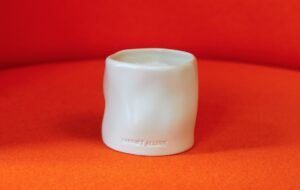|
Design studio Method has developed a system of software, data and networked objects that could revolutionise healthcare A greater role for outpatient care is often proposed as a way to reduce the cost of heath services. It’s cheaper, the argument goes, to treat patients with long-term ailments in their homes, and it frees up physicians’ time and hospital beds for those with more urgent needs. Of course, the success of such initiatives depends to a great extent on patients managing their own treatments effectively, as round-the-clock care is unlikely to be available in most cases. Unfortunately, a 2011 study revealed that more than half of patients with chronic illnesses don’t take their medicines as prescribed – for reasons ranging from the patient’s lack of health literacy and involvement in decision-making processes to inadequate communication from the medical practitioner. Design studio Method has developed a proposal for a healthcare system that it hopes will address some of these issues. Launched at the recent London Technology Week, ‘Nightingale’ combines artificial intelligence and connected devices, from pill packaging to clocks and kettles, in an effort to improve treatment adherence, reducing preventable health complications and, thus, unnecessary re-admittance to hospital. The system looks at the multiple factors that shape medicine-taking behaviour and employs a variety of interventions to counter them, based around data gathered about the patient’s behaviour and low-cost consumer technologies. At its heart is a software interface called Flo (the ‘Florence’ to the ‘Nightingale’ system), a smartphone app that engages you in human-like conversation, reminding you take your medicine, advising you on unexpected developments and answering your questions. Using bluetooth connections and smart clips, the medicine packaging monitors whether or not you’ve taken your dose and transmits this information to the cloud. A variety of household objects that fit into your everyday routine are equipped with technology like flashing lights to then ‘nudge’ you towards complying with your advised regime, toning down or increasing the reminders based on changes in your behaviour. Such systems are likely to become increasingly prevalent, especially in countries with ageing populations and fiscally conservative governments. But some studies have suggested that up to 50 per cent of non-adherence to medical routines is ‘intentional’ – for reasons ranging from depression to the belief that the treatment will be ineffective. Such findings serve as a warning against an urge to rely too heavily on technological solutions to complex, human problems – a smart system can only be so smart. |
Words Debika Ray |
|
|



















